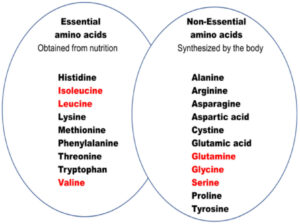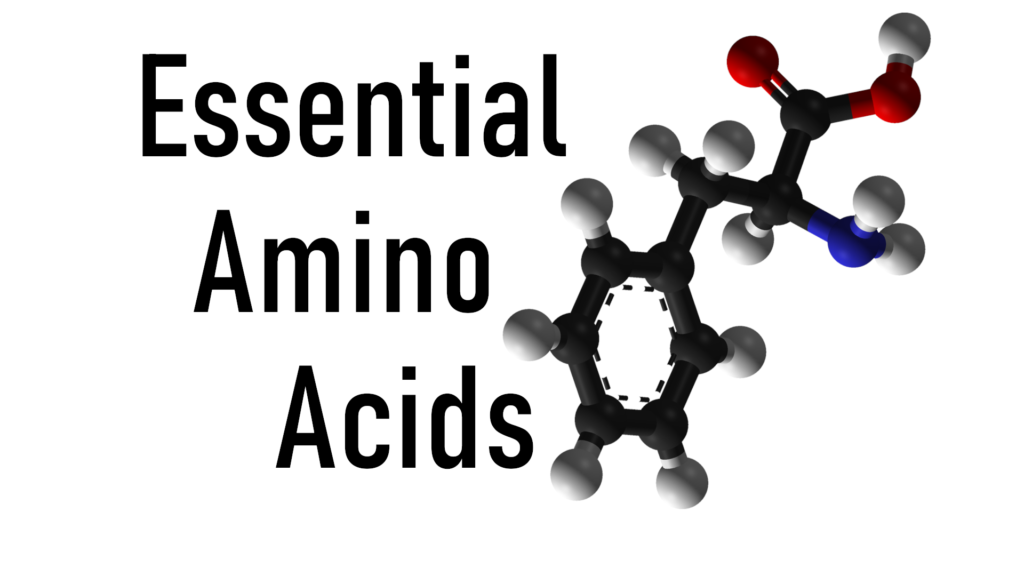Essential amino acids or indispensable amino acids are organic substances that cannot be synthesized by the human body independently, they must come to us together with food or supplements. They take an active part in all metabolic processes, so without them, the normal functioning of our body is impossible. In addition, amino acids are the main building material for all tissues, including muscle.
All amino acids (including essential ones) are a structural component of proteins, so their main sources are high-protein products.
A list indispensable amino acids

There are different opinions about essential amino acids. Some sources say that there are eight of them, others insist that there are nine. Why are there such disagreements and how many of them are there really?
The fact is that there are only eight of them, and the ninth amino acid – histidine — is indispensable only for the child’s body, and in adults it is perfectly synthesized independently.
Arginine is also indispensable for children, but synthesized in the adult body.
Therefore, the answer to the question “how many essential amino acids are there for an adult?” is obvious: there are eight of them.
So, there are 8 essential amino acids that the body cannot synthesize itself:
valin;
isoleucine;
leucine;
lysine;
methionine;
threonine;
tryptophan;
phenylalanine.
Where are the essential amino acids contained
The myth of the presence of indispensable amino acids only in animal food is precisely a myth actively promoted by food corporations and owners of the meat processing industry.
On the Internet, you can find enough information about which plant products contain all eight amino acids.
First of all, legumes are rich in essential amino acids — peas, lentils, chickpeas, peanuts, etc. However, peanuts are extremely undesirable for consumption. In order to protect the plant and fruits from being eaten by pests during cultivation, peanuts are crossed with petunia genes, and such peanuts are extremely harmful to the liver. However, even if the peanuts are not modified, under the wrong storage conditions, a very dangerous mold forms on it, which leads to cancer. Peanuts also acidify our body, which is extremely harmful.
Nuts, seeds and cereals are rich in amino acids. Sunflower seeds, pumpkin and sesame seeds will be especially useful. And among the cereals — oats and unpolished rice. Among nuts, almonds, cashews and walnuts contain the most amino acids.
Thus, a complete list of indispensable amino acids can be obtained even if all animal products are excluded from the diet.

